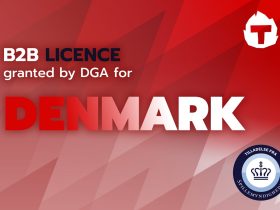 Reading Time: 2 minutes
Reading Time: 2 minutes
On September 16, 2021 the National Police Board (“NPB”) imposed a prohibition order and conditional fine of EUR 800,000 for Eurosport SAS (“Eurosport”), a pan-European sports network established in France, for broadcasting gambling advertisements on the Finnish language version of Eurosport 1 television channel.
According to our sources, prior to this the NPB had twice approached Eurosport arguing they infringe the Finnish Lotteries Act marketing prohibitions and requested the actions to be ended. Eurosport remained passive throughout the process until October 27, when they informed the NPB that in their view the decisions of September 16 were “manifestly incorrect”. Eurosport added that they will comply with the NPB’s request for now and they will not broadcast commercial gambling advertising on Eurosport 1 in Finland for the period of three months starting from October 28, 2021. Eurosport notified the NPB of their intention to appeal the NPB’s decisions of September 16 and the Helsinki Administrative Court confirmed that Eurosports appeal was filed October 28 and it is currently pending.
The subject matter of the case is interesting. The NPB makes a convincing case that Eurosports gambling advertisement is infringing the Finnish Lotteries Act. However, their argumentation regarding Audiovisual Media Services Directive (“AVMSD”) is less convincing.
The country of origin principle (“CoO principle”), according to which each EU Member State is legally responsible for all audiovisual media services originating from its own country, is a cornerstone of the AVMSD. Article 4 lays down exceptions to the CoO principle and defines the procedure which must be followed if a Member State is to take action against a media service provider established in another EU Member State.
With regarding to the AVMSD, the NPB would have to at the very least notify the EU Commission pursuant to Article 4 (4) of their intended actions and to substantiate the grounds on which its assessment is based. The EU Commission would need to decide that the measures are compatible with EU law. That has not been the case here.
The NPB argues that the AVMSD does not intend to harmonise gambling advertising in the EU and thus the CoO principle or Article 4 procedures do not restrict them taking direct action against Eurosport.The NPB’s argumentation is based on the recital 10 of the consolidating directive of 2018 which states that the AVMSD does not affect a Member State’s competence to decide on national approach to gambling advertising presumed that the measures taken are justified, proportionate to the objective pursued and necessary under the EU law.
As it is not stated anywhere in the AVMSD (original or consolidated version) that gambling marketing is excluded from the scope, the NPB’s argumentation appears at least questionable. If the Helsinki Administrative Court comes into a similar conclusion the case will fall apart.
The article has been written Antti Koivula, Consulting Legal Advisor at Legal Gaming.





